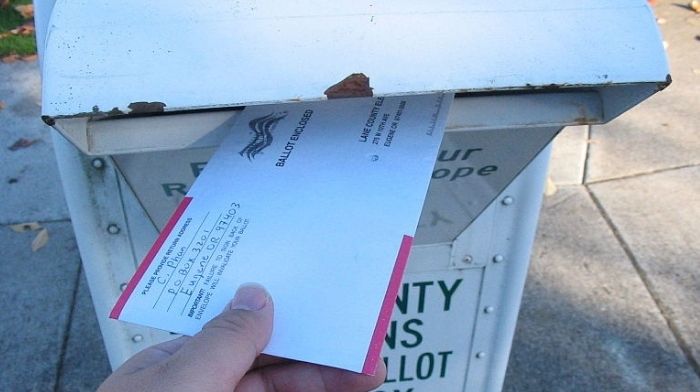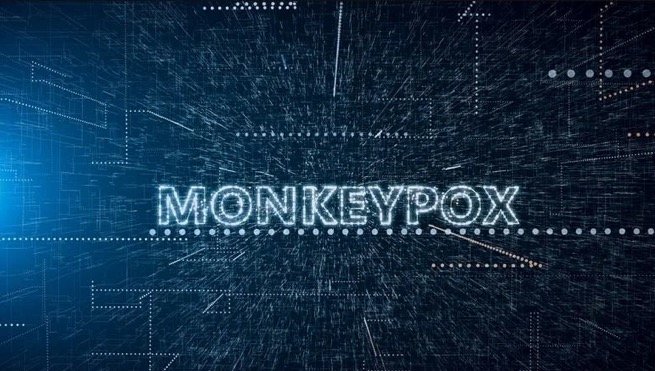Heritage Foundation Unveils ‘Election Integrity Scorecard’
By Philip Wegmann for RealClearPolitics
During a Zoom call at the beginning of the year, a staffer at the Heritage Foundation wondered aloud if anyone had ever compiled a database comparing all the different state election laws. The idea was that it would have to be comprehensive, detailed, and above all else, publicly available.
John Malcolm doesn’t recall who asked exactly but the question stayed with the director of the organization’s legal and judicial studies center. “I thought about it, not even for too terribly long,” he recalled, “and said that’s a really great idea: We will spend whatever time it takes to do it.”
A year later, as Republicans and Democrats continue to debate access to the ballot in statehouses across the country, it’s here.
On Tuesday, Heritage will unveil the “Election Integrity Scorecard,” RealClearPolitics is first to report. According to an advanced review of the website, the goal is simple: “Assessing the status of state election fairness and security.” The premise, universal and bipartisan: “every citizen’s vote is sacred.”
RELATED: Cities Will Set Murder Records Because Of ‘Soros Effect’
Heritage, a conservative Capitol Hill think tank founded in 1973, has some practice handing out scorecards through its partner organization. Heritage Action has been grading members of Congress since the Obama administration on how closely each individual lawmaker adheres to conservative orthodoxy.
The new project is similar in scope and it includes more than letter grades. Lawmakers and voters can see how Heritage ranks each state by hovering their mouse over an interactive color-coded map of the United States. They have lit up the entire country with reds, yellows, and greens to easily indicate which states have done the best to live up to the Heritage standard of running an election.
Georgia and Alabama and Tennessee are forest green, ranking first, second, and third, respectively. Hawaii and Nevada and California, meanwhile, blaze red and bottom out the list.
Support Conservative Voices!
Sign up to receive the latest political news, insight, and commentary delivered directly to your inbox.
Heritage assigned those grades out of a possible perfect score of 100 according to a dozen categories, each weighted differently, from implementation of voter ID requirements and maintenance of voter registration rolls to prohibition of private election funding to access for election observers.
The colored cubes are just the front end of a year’s worth of research, and the think tank hopes users will click and expand to see where individual states excel and underachieve. Elected officials will no doubt soon hear about their scores from dedicated conservative activists. Election officials, however, should not be surprised by their grades.
Heritage did its own analysis of current election laws in all 50 states as well as the District of Columbia, Malcolm explained (D.C. was included because of the three Electoral College votes it casts for president). Then Heritage invited election law experts from each state to review the work.
States had two opportunities to do so: Election officials were forwarded the initial review to check for accuracy and then presented a final summary to correct any potential errors. It is not, however, a final product.
All that is by design. Because the scorecard is online, Malcolm said that as states update their election laws — “and we will be looking” — Heritage can update their scores. “If that changes the ranking,” he said, underscoring the entire point, “it changes the ranking.” After all, the project is not an entirely academic project — the scorecard comes complete with model legislation.
RELATED: USPS Will Pay Postmaster General-Connected Company $120M
Jessica Anderson, the executive director of Heritage Action, the lobbying arm of the organization, expects its army of grassroots activists to blitz state capitols and push lawmakers to reform their laws according to think tank standards.
“Next year, our activists will be able to use Heritage’s Election Integrity Scorecard as a roadmap to go back to their legislators and advocate for further election integrity measures. The scorecard represents the single best resource for Americans in all 50 states to understand election integrity laws and advocate to make it easy to vote and hard to cheat in their state,” Anderson said.
They have been doing that already, and people have already taken note. A small platoon of Heritage Action activists met with Republican legislators in Georgia earlier this year. As the New York Times reported in August, within days of the meeting “bills to restrict voting access in Georgia began flooding the Legislature.”
But the conservative operatives weren’t acting in secret. Heritage lavished public praise on Gov. Brian Kemp for signing major election changes into law months before the Times story. It did the same in Arizona when Gov. Doug Ducey backed a new law that requires the secretary of state to cross-reference death records with voter registration.
Voting reform has increasingly become an animating impulse on the right after the 2020 election, which former President Trump charged was “stolen,” a claim that election experts vehemently deny. For instance, a 20-year study of the issue by the Massachusetts Institute of Technology found the level of mail-in ballot fraud five times less likely than the chances of being struck by lightning.
Conversely, Democrats, including President Biden himself, have likened Republican efforts to tighten voting laws to Jim Crow-era voting restrictions in the Deep South.
Similar charges will inevitably follow the new Heritage scorecard. “They’re just bunk,” Malcolm said in a preemptive defense before reciting the hallmark of the new initiative. “We want to make it easy for every legitimate voter to vote,” he explained. “And we want to make it harder to cheat and easier to catch when someone does cheat.”
RELATED: Think You’ll Be Safe From ‘Wealth Taxes’? Think Again
The year-long effort isn’t an attempt to placate the former president either, he offered. “I can’t help what happened in 2020 and can’t help what former President Trump says about the election.”
It isn’t like this is the first time Heritage has concerned itself with the election system either, he continued, pointing to work the think tank did in the aftermath of the Florida recount in 2000. “If we look at the Heritage record,” he concluded, “we’ve been writing about this for years now.”
While Heritage admits that it is “impossible to measure” the full extent and effect of voter fraud, the scorecard includes a preemptive defense of the effort to weed it out. The project’s introduction is peppered with quotes from former presidents like Dwight Eisenhower extolling the sanctity of the ballot box and Jimmy Carter declaring elections “the heart of democracy.”
In particular, they quote as a pretext for their effort the 2005 bipartisan Commission on Federal Election Reform co-chaired by former Secretary of State James A. Baker and Carter, which warned of the potential abuse of absentee ballots and highlighted the fact that “if elections are defective, the entire democratic system is at risk.”
Heritage has provided its answer, then, to what an ideal electoral system looks like in its view. What’s more, it has judged each of the 50 states according to their individual standards. It is all pretty simple, Malcolm insisted: “We want to give every state a roadmap to figure out what they can do to improve their election laws.”
Syndicated with permission from RealClearWire.
The opinions expressed by contributors and/or content partners are their own and do not necessarily reflect the views of The Political Insider.






